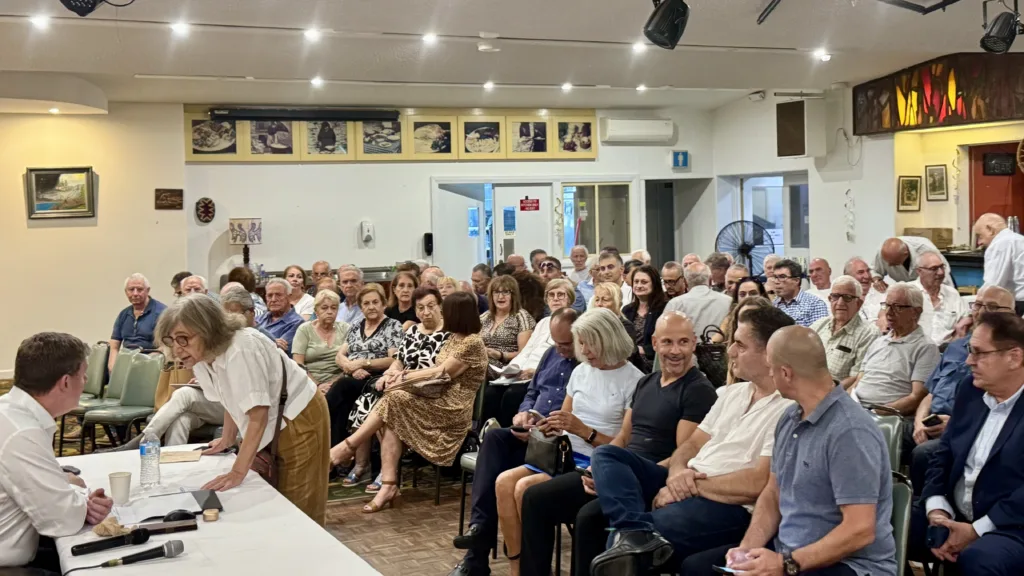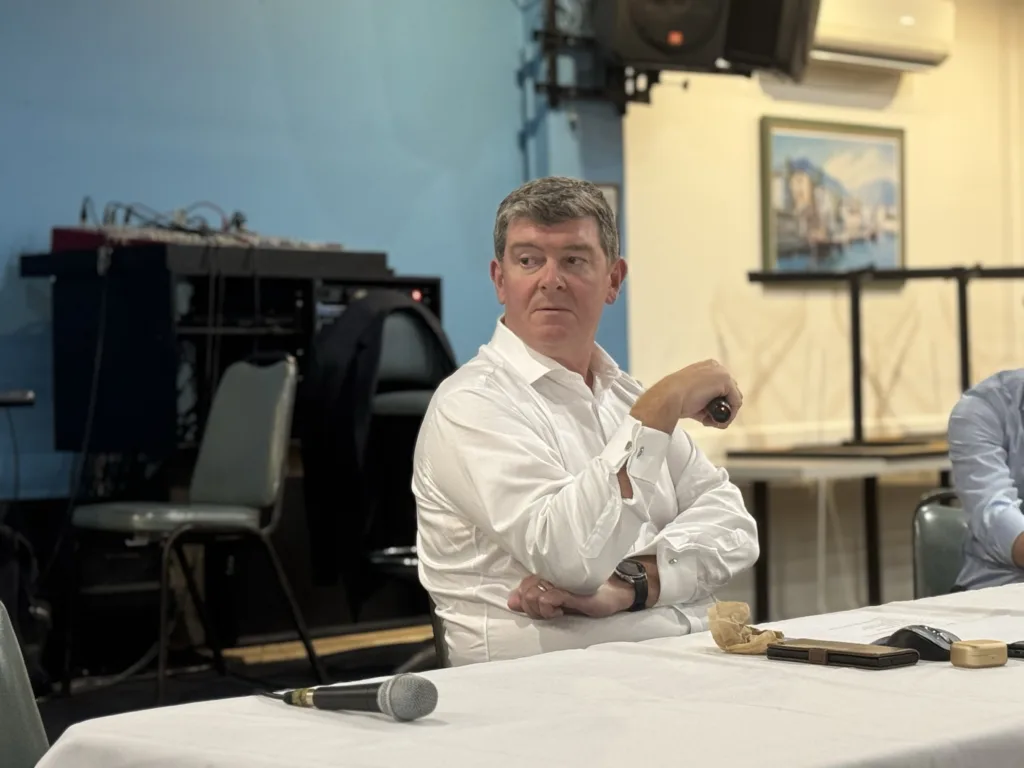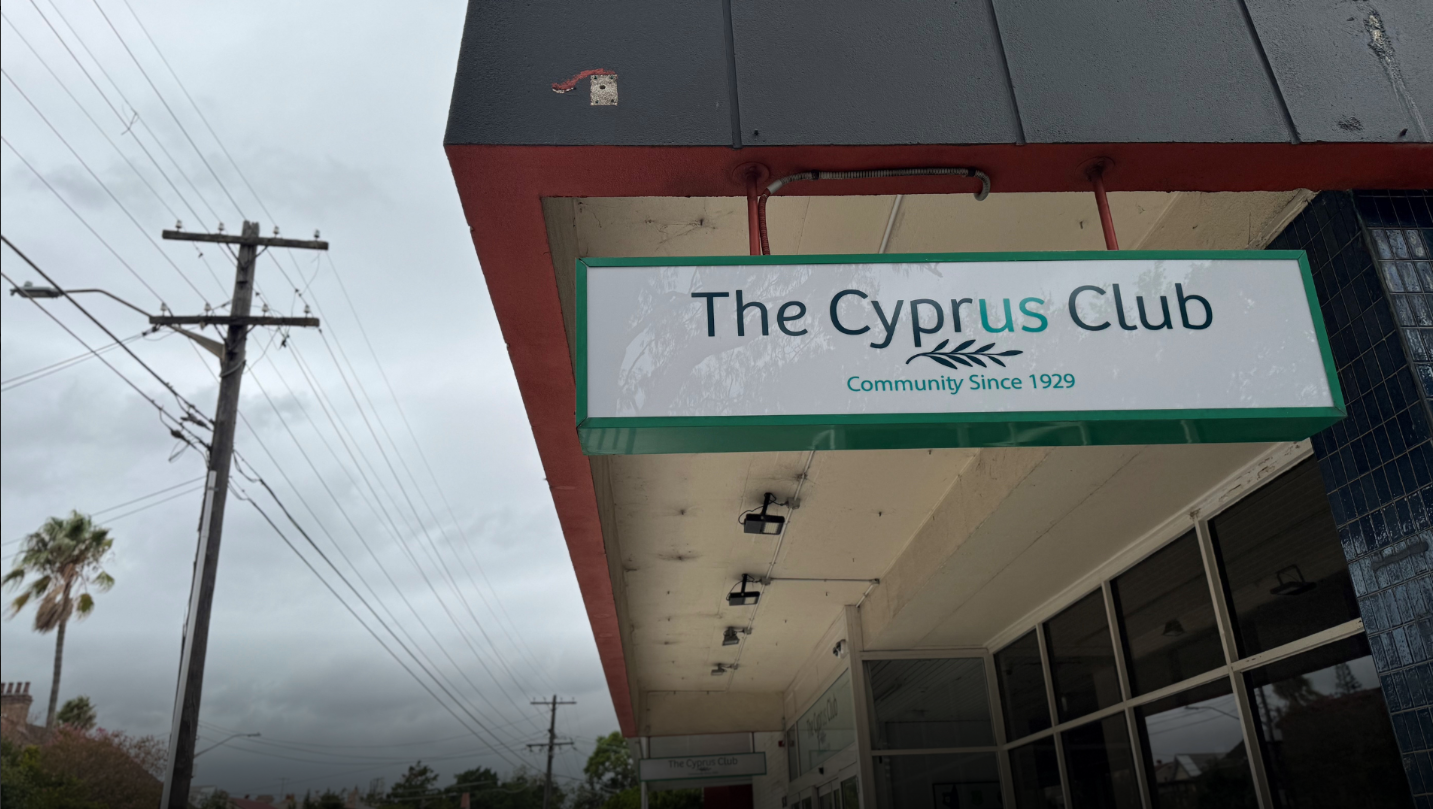An affidavit and supporting documentation, filed with the NSW Supreme Court on 10 April 2025 as part of Ernst & Young’s (EY) application to extend the administration period, outlines a series of concerning observations, claims and internal disputes surrounding the Cyprus Community of NSW Ltd.
Prepared by Morgan Kelly of EY, the 24-page affidavit and 260 page exhibit details the complex challenges facing the community organisation, including governance breakdowns, contested financial decisions and unresolved legal tensions — all of which have contributed to the administration now being extended to October 2025.
Among the material presented in the affidavit is a letter submitted to EY by a group of members (some of which are suspended or expelled). The letter raises allegations about past board conduct and EY’s oversight. A 6-page email response was issued by Mr Kelly addressing those matters.
Tensions reported at March meeting
One of the more dramatic passages of the 6-page email refers to the member information session held at the Cyprus Club on 13 March 2025. Mr Kelly recounts an incident involving former president Spyros Constantinou, who attempted to attend the session despite his membership being cancelled. According to the affidavit, Mr Constantinou was asked to remain in the foyer but became agitated. An associate identifying as his bodyguard allegedly warned EY staff that “things could turn violent if necessary.”
Mr Kelly states that, to defuse the situation and ensure safety, all expelled and suspended individuals were allowed entry — a notable departure from the original policy of limiting the meeting to financial members only.

A fractured membership base
The affidavit details prolonged delays stemming from legal disputes between member groups and creditors. A legal challenge brought by Cyprus Capital and its director Con Costa, which questioned the validity of EY’s appointment, is noted as having stalled progress for several months.
Mr Kelly also references internal divisions that predate the administration, with conflicting visions for the club’s future, unresolved property matters, and member dissatisfaction over previous board conduct.
Concerns over property deal and potential conflicts
The 6-page email reveals that Eric Costas and former president Mr Constantinou had supported a redevelopment proposal from a developer known as Platino. EY’s Real Estate Advisory Project Management team reviewed the proposal and raised concerns that certain individuals, including Mr Costas and “other certain Cyprus Club Members”, are entitled to financial gain and that the proposal “is favoured for self-interest rather than the benefit of the community”.
The administrators flagged that such interests may compromise members’ ability to vote impartially and confirmed that anyone with a financial interest would be excluded from the Property Steering Panel. While no misconduct is alleged, the concern over impartiality adds another layer of complexity to an already fractious situation.

Allegations rebutted in Court filing
In his sworn response, Mr Kelly rejects accusations of bias or improper influence. He explains that the administration’s actions — including the controversial decision to admit expelled members to the March meeting — were taken to ensure safety and de-escalate tensions. Mr Kelly also disputes any personal or professional connection to individuals alleged to have influenced EY’s appointment.
He further notes that despite numerous invitations, the individuals who raised concerns have yet to provide further documentation to support their claims.
$1.1 million dispute and questions over Receivers’ role
The affidavit also sheds light on a simmering financial dispute involving a $1.092 million portion of the payout claimed by Cyprus Capital. That amount was withheld and paid into court, with its final allocation still to be determined. Mr Kelly states this figure includes fees claimed by the former Receivers and Managers, whose tenure ended in February 2025.
EY raises serious questions over the legitimacy of those receiver fees — reportedly nearing $1 million — and notes that the Receivers failed to progress a property sale strategy or meaningfully advance the community’s future while in office. Despite being in control of the club’s operations for several months, the Receivers reportedly did not obtain valuations, run tenders, or conduct an EOI process.
Mr Kelly also highlights how Cyprus Capital’s conduct — including its refusal to cooperate on refinancing matters — contributed to administrative delays and legal costs, ultimately reducing funds available to creditors.
Crucial decisions loom
While the administration has been extended to October, the real test lies ahead. A successful Deed of Company Arrangement (DOCA) — a proposal that would allow the organisation to continue operating while repaying creditors — remains under consideration but is not yet in a form that EY can recommend.
If a viable DOCA is not finalised and accepted by creditors, EY may be forced to advise winding up the community — a move that would result in liquidation, sale of assets, and the loss of member control. As stakeholders await the next round of creditor and member meetings, the affidavit offers a sobering glimpse into what’s at stake and just how far the road to recovery may still stretch.
The affidavit and accompanying exhibits offer rare insight into the behind-the-scenes pressures, financial disputes and leadership struggles that continue to grip one of Sydney’s most prominent Cypriot community organisations.
The Greek Herald will continue to follow this matter closely as administrators and stakeholders navigate the next critical phase of the Community’s future.

